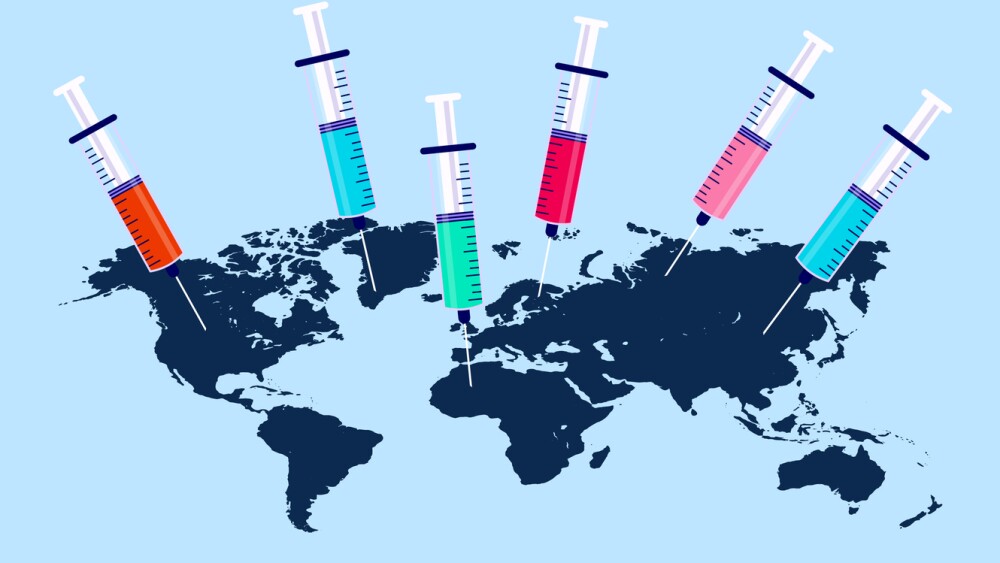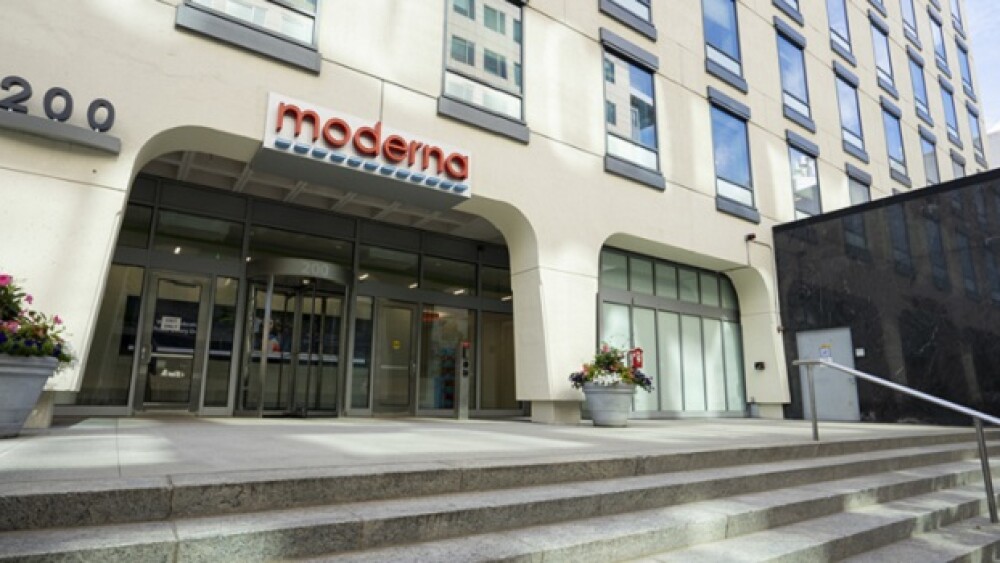Nexavar is currently marketed worldwide for the treatment of hepatocellular carcinoma (HCC), or liver cancer, and advanced renal cell carcinoma (RCC), or kidney cancer.
Enrollment in NExUS commenced in February 2007. In 2008, based on the results seen in a previous Nexavar first-line NSCLC Phase 3 trial, the NExUS study protocol was amended to stop enrolling and treating squamous cell carcinoma patients. Of the squamous cell patients who were enrolled in the NExUS trial before the amendment, a higher mortality was observed. This finding was consistent with what was seen in the previous trial.
Bayer and Onyx will further review the findings of this analysis to determine what, if any, impact these data might have on other ongoing clinical trials evaluating the safety and efficacy of Nexavar.
"Bayer and Onyx are disappointed with these results, in particular, for patients who are suffering from this deadly disease," said Dr. Dimitris Voliotis, Vice President, Global Clinical Development Oncology, Bayer HealthCare. "We are confident in our clinical trial program exploring Nexavar's potential in a variety of tumor types, including lung cancer. Based on encouraging data from a recently presented prospective biomarker trial and Phase 2 signal-generating lung cancer studies, we believe it's critical to continue our evaluation of Nexavar in combination with targeted agents and as a monotherapy in later lines of treatment in lung cancer patients."
Nexavar is being evaluated by the companies and individual investigators in a variety of treatment settings for patients with non-small cell lung cancer, including a Phase 3 monotherapy study in the third- and fourth-line setting and Phase 2 studies in combination with other therapies in the second-line setting.
NExUS Trial Design
This Phase 3, randomized, double-blind, placebo-controlled study evaluated Nexavar (sorafenib) tablets in combination with the chemotherapeutic agents, gemcitabine and cisplatin, in treatment-naive non-small cell lung cancer patients. The primary endpoint was overall survival, and secondary endpoints included progression-free survival, tumor response and safety. Patients were randomized to receive 400 mg of oral Nexavar or matching placebo twice daily, in addition to gemcitabine and cisplatin for up to six cycles. Subsequently, patients continued in a maintenance phase where Nexavar or placebo was administered as a single agent. The study enrolled approximately 900 patients from sites throughout Europe, South America, Asia Pacific and the Middle East.
About Non-Small Cell Lung Cancer (NSCLC)(1)
Non-small cell lung cancer accounts for 85-90% of diagnosed lung cancers and is a disease in which malignant (cancer) cells form in the tissues of the lung. It is characterized by several types of lung cancers, each of which grow and spread in different ways, including: squamous cell carcinoma, adenocarcinoma, and large cell carcinoma.
Every year 1.4 million people worldwide will be diagnosed with lung cancer. There are nearly 205,000 new cases in the United States and approximately 375,000 new cases in Europe each year. Annual deaths as a result of non small cell lung cancer are estimated at 160,000 in the United States and 342,000 in Europe.
Nexavar's Differentiated Mechanism Nexavar, an oral anti-cancer therapy, is currently approved in more than 90 countries for liver cancer and in more than 95 countries for the treatment of patients with advanced kidney cancer. Nexavar inhibits both the tumor cell and tumor vasculature. In preclinical studies, Nexavar has been shown to inhibit members of two classes of kinases thought to be involved in both cell proliferation (growth) and angiogenesis (blood supply) – two important processes that enable cancer growth. These kinases included Raf kinase, VEGFR-1, VEGFR-2, VEGFR-3, PDGFRB, KIT, FLT-3 and RET.
Nexavar is also being evaluated by the companies, international study groups, government agencies and individual investigators as a single agent or combination treatment in a wide range of cancers, including lung, thyroid, breast, ovarian and colorectal cancer and as an adjuvant therapy for liver and kidney cancer.
Important Safety Considerations For Patients Taking Nexavar
Based on the currently approved U.S. package insert for the treatment of patients with unresectable hepatocellular carcinoma and advanced kidney cancer, hypertension may occur early in the course of therapy and blood pressure should be monitored weekly during the first six weeks of therapy and treated as needed. In HCC patients, bleeding with a fatal outcome from any site was reported in 2.4% for Nexavar and 4% in placebo. The incidence of treatment-emergent cardiac ischemia/infarction was 2.7% for Nexavar vs. 1.3% for placebo. In RCC patients, incidence of bleeding regardless of causality was 15% for Nexavar vs. 8% for placebo and the incidence of treatment-emergent cardiac ischemia/infarction was 2.9% for Nexavar vs. 0.4% for placebo. Most common adverse events >/=20% related to Nexavar for both HCC and RCC were fatigue, weight loss, rash/desquamation, hand-foot skin reaction, alopecia, diarrhea, nausea, and abdominal pain. Grade 3/4 adverse events in HCC and RCC patients, respectively, were 45% for Nexavar vs. 32% for placebo and 38% for Nexavar and 28% for placebo. Women of child-bearing potential should be advised to avoid becoming pregnant and advised against breast-feeding. In cases of any severe or persistent side effects, temporary treatment interruption, dose modification or permanent discontinuation should be considered.
For information about Nexavar including U.S. Nexavar prescribing information, visit www.nexavar.com or call 1.866.NEXAVAR (1.866.639.2827).
About Bayer HealthCare Pharmaceuticals Inc. Bayer HealthCare Pharmaceuticals Inc. is the U.S.-based pharmaceuticals business of Bayer HealthCare LLC, a subsidiary of Bayer AG. Bayer HealthCare is one of the world's leading, innovative companies in the healthcare and medical products industry, and combines the activities of the Animal Health, Consumer Care, Diabetes Care, and Pharmaceuticals divisions. Bayer HealthCare Pharmaceuticals comprises the following business units: Women's Healthcare, Diagnostic Imaging, General Medicine, which includes Cardiology and Primary Care and Specialty Medicine, which includes Hematology, Oncology and Multiple Sclerosis. The company's aim is to discover and manufacture products that will improve human health worldwide by diagnosing, preventing and treating diseases.
About Onyx Pharmaceuticals, Inc. Onyx Pharmaceuticals, Inc. is a biopharmaceutical company committed to improving the lives of people with cancer. The company, in collaboration with Bayer HealthCare Pharmaceuticals, Inc., is developing and marketing Nexavar® (sorafenib) tablets, a small molecule drug that is currently approved for the treatment of liver cancer and advanced kidney cancer. Additionally, Nexavar is being investigated in several ongoing trials in a variety of tumor types. Beyond Nexavar, Onyx has established a development pipeline of anticancer compounds at various stages of clinical testing, including carfilzomib, a next-generation proteasome inhibitor, that is currently being evaluated in multiple clinical trials for the treatment of patients with relapsed or relapsed/refractory multiple myeloma and solid tumors. ONX 0801, a targeted alpha-folate inhibitor, and ONX 0912, an oral proteasome inhibitor, are currently in Phase 1 testing. For more information about Onyx, visit the company's website at www.onyx-pharm.com.
Forward Looking Statements
This news release may contain forward-looking statements based on current assumptions and forecasts made by Bayer Group or subgroup management. Various known and unknown risks, uncertainties and other factors could lead to material differences between the actual future results, financial situation, development or performance of the company and the estimates given here. These factors include those discussed in Bayer's public reports which are available on the Bayer Web site at www.bayer.com. The company assumes no liability whatsoever to update these forward-looking statements or to conform them to future events or developments.
This news release contains "forward-looking statements" of Onyx within the meaning of the federal securities laws. These forward-looking statements include without limitation, statements regarding the progress and results of the clinical development, safety, regulatory processes, commercialization efforts or commercial potential of Nexavar. These statements are subject to risks and uncertainties that could cause actual results and events to differ materially from those anticipated, including risks related to the development and commercialization of pharmaceutical products. Any statements contained in this press release that are not statements of historical fact may be deemed to be forward-looking statements. Reference should be made to Onyx's Annual Report on Form 10-K for the year ended December 31, 2009, filed with the Securities and Exchange Commission under the heading "Risk Factors" and Onyx's Quarterly Reports on Form 10-Q for a more detailed description of such factors. Readers are cautioned not to place undue reliance on these forward-looking statements that speak only as of the date of this release. Onyx undertakes no obligation to update publicly any forward-looking statements to reflect new information, events, or circumstances after the date of this release except as required by law.
Nexavar® (sorafenib) tablets is a registered trademark of Bayer Healthcare Pharmaceuticals, Inc.
(1) Ferlay J, et al., GLOBOCAN 2002. Cancer Incidence, Mortality and Prevalence Worldwide. IARC CancerBase No.5, Version 2.0. IARCPress, Lyon, 2004. Available at: http://www-dep.iarc.fr.




